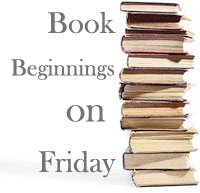 I discovered a need for theme songs about two months into the Women Unbound reading challenge. That's when "Sister Suffragette" from the Mary Poppins movie came to mind. "Sister Suffragette" was written about the First Wave of feminism, when women were struggling to get the right to vote in the early 20th century. I posted a YouTube video of the song because of the line: "Take heart for Missus Pankhurst has been clapped in irons again." Emmeline Pankhurst was a militant British activist, doing all she could to get the vote for women -- and she was a minor character in Tracy Chevalier's novel Falling Angels, which I read for this challenge. Surprisingly, what I wrote about Pankhurst and "Sister Suffragette" has become my most popular post ever.
I discovered a need for theme songs about two months into the Women Unbound reading challenge. That's when "Sister Suffragette" from the Mary Poppins movie came to mind. "Sister Suffragette" was written about the First Wave of feminism, when women were struggling to get the right to vote in the early 20th century. I posted a YouTube video of the song because of the line: "Take heart for Missus Pankhurst has been clapped in irons again." Emmeline Pankhurst was a militant British activist, doing all she could to get the vote for women -- and she was a minor character in Tracy Chevalier's novel Falling Angels, which I read for this challenge. Surprisingly, what I wrote about Pankhurst and "Sister Suffragette" has become my most popular post ever.Thinking of the First Wave of feminism, of course, brings up the Second Wave of the 1960s and 1970s. I was a part of that, when women struggled to get equal rights, especially in the workplace. Our most powerful song was "I Am Woman," later chosen as the theme song for International Women's Year (1975). Care quoted from the song as we entered the closing weeks of the Women Unbound reading challenge. Here's Helen Reddy singing her song live in 1975.
Listening to Helen Reddy sing reminds me of the years 1979-1981, when I did management training on EEO compliance. My training partner was black, and one memorable day a manager shouted at me from the back of the large room: "No black man and white woman are gonna tell ME what to do!" I calmly explained to the belligerent man (all of the managers were men, by the way) that he could be held financially responsible for asking the wrong questions when hiring and firing. He shut up and there were no further outbursts.
We are now is the Third Wave of feminism, so I asked younger women to suggest a song for this wave. The 13-year-old daughter of a friend (Alisonwonderland, who also participated in this challenge) suggested "This One's for the Girls" by Martina McBride for the current Third Wave of feminism. It's for the "girls" about 13, 25, or 42, "tossing pennies into the fountain of youth." A young lawyer friend suggested that Martina McBride's "Independence Day" was even more appropriate for her generation's Third Wave.
 These songs have become an important sidetrack for me as I've read books, books, books -- fiction and nonfiction -- about bound and unbound women. Maybe some who participated in this challenge could suggest even more appropriate songs that haven't occurred to me.
These songs have become an important sidetrack for me as I've read books, books, books -- fiction and nonfiction -- about bound and unbound women. Maybe some who participated in this challenge could suggest even more appropriate songs that haven't occurred to me.Before November ended last year, I had decided to read and review as many books about women (and girls) as possible. When I said "as many as possible," I really meant it and started a (long) list of books I have read for the challenge. There are so many on my list that I haven't been able to keep up with book reviews for every single one. I have read 109 books that fit this challenge and have reviewed 71 of them. I've even decided to write a book. Click this link, if you want to read the well-over-100 posts I've written about Women Unbound.
If you took part in the Women Unbound reading challenge, I'd like to hear from you. I came up with these questions a couple of weeks ago. Are there other questions I should ask?
Read everyone's wrap-up posts (and post yours) on the Women Unbound main page.1. What book (or two or three) really stood out for you? Why?
2. Did you learn something new? What was it? Was it from a book or from another blogger?
3. If you are one who said in the beginning that "women are our own worst enemies," did you still think so by the end of the year?
4. Did you make great strides in consciousness or understanding?
5. Were you more interested in fiction or nonfiction?
6. Did the features [guest bloggers, etc.] enhance your learning or enjoyment?
7. Tell me something about yourself, like your age and how much you knew about women's issues before you took part in this challenge.













































